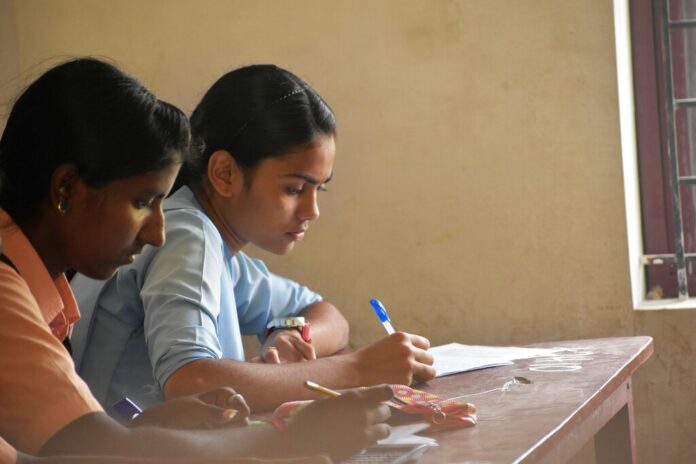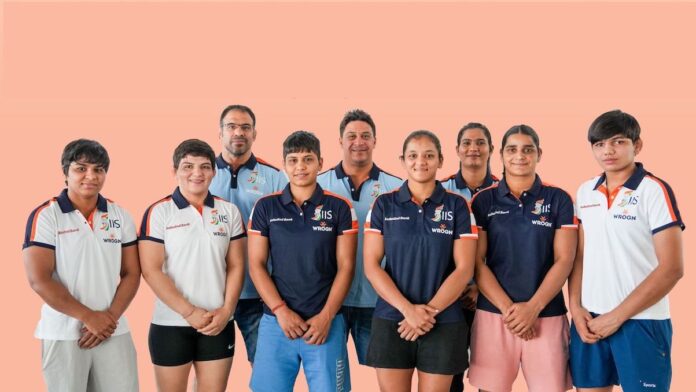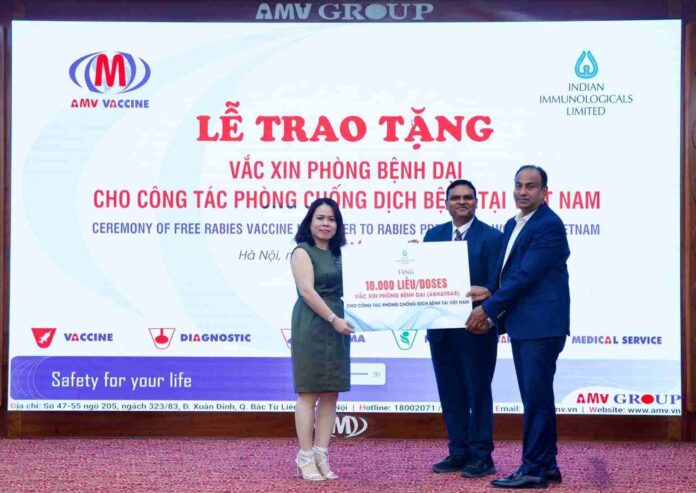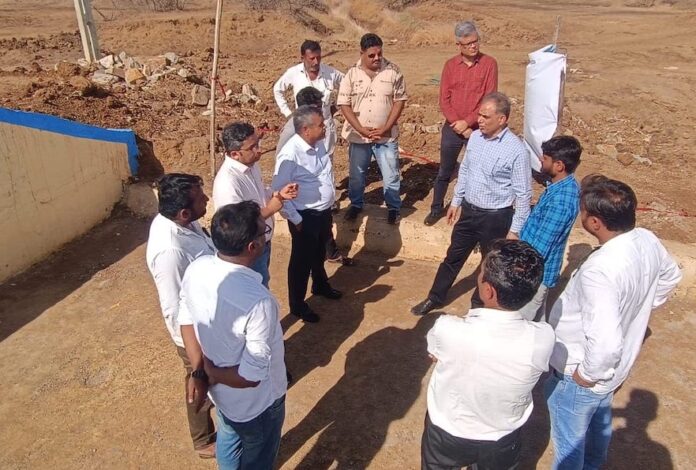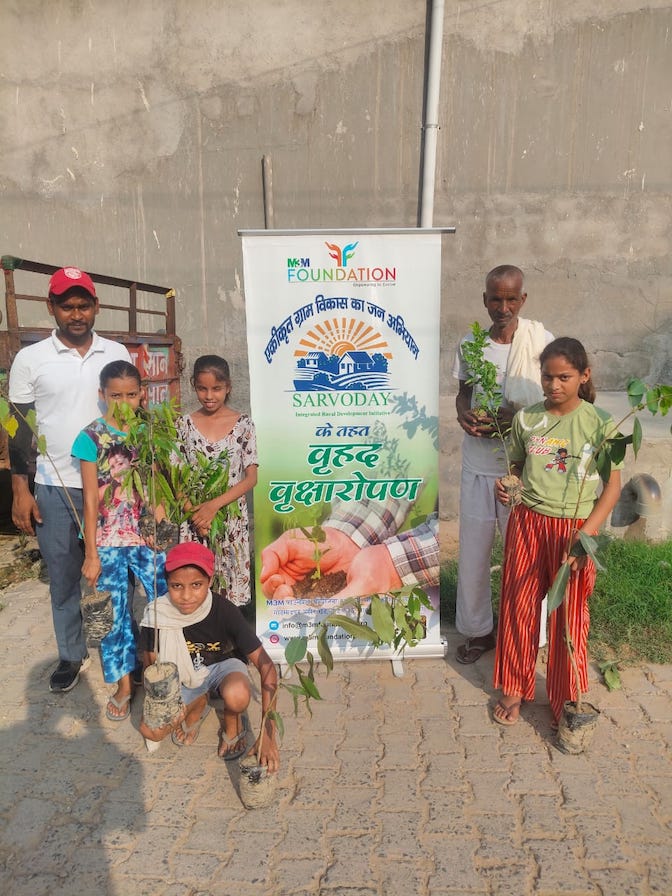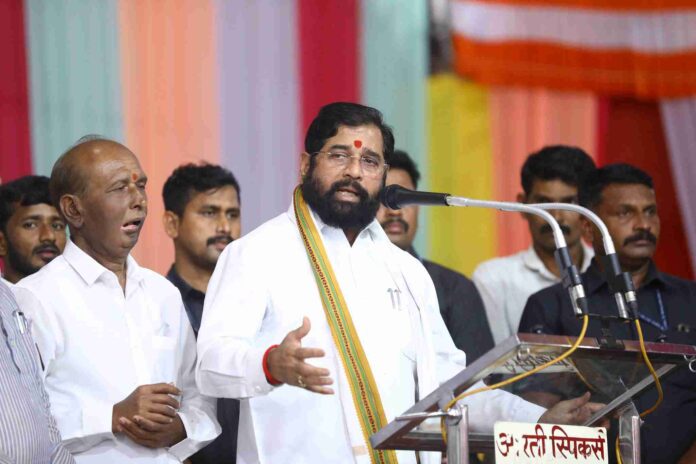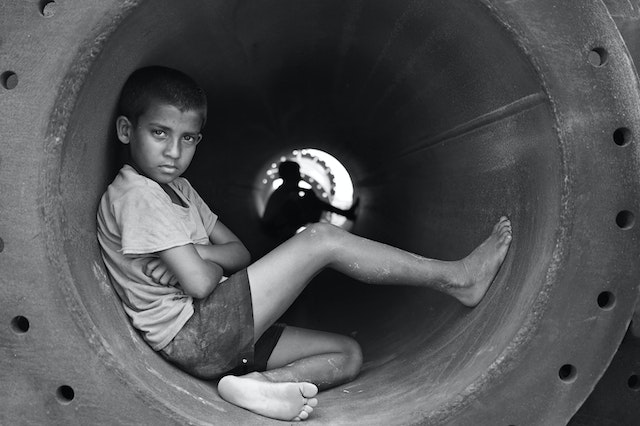Climate Change Directly Impacts Education: UN Report
According to a new report, climate change has a direct impact on education. A report by the Global Education Monitoring Report of United Nations Educational, Scientific and Cultural Organization has highlighted the long-term impact caused as a result of climate shocks experienced during the early childhood years.
The paper, which is part of a series aimed at fostering dialogue on education and the UN Sustainable Development Goals (SDGs), has raised concerns regarding the lasting damage that extreme weather events can cause on development of a child. The paper, published in partnership with the Monitoring and Evaluating Climate Communication and Education (MECCE Project), focused on climate change. According to Education and climate change: Learning to act for people and planet, climate related stressors, such as heat, wildfires, storms, floods, droughts, diseases and rising sea levels, affect education outcomes.
Effects on Cognitive Ability of Children
The report has emphasised upon the vulnerability of young children. Their dependence on adults and developing bodies make them more vulnerable to the immediate physical hazards of floods, droughts, and heatwaves. However, apart from he physical impact, they are also affected severely in terms of their emotional well-being and cognitive thinking thus directly causing a significant impact on their education.
The study showed that children in Ecuador who were exposed to severe El Nino floods while still in uterus were shorter and performed worse on cognitive tests five to seven years later. A study of rainfall shocks in the uterus during the first 15 years of life in India discovered that they had a negative impact on vocabulary at age 5, as well as mathematics and non-cognitive abilities at age 15.
An analysis of disasters experienced early in life by over 140,000 children in seven Asian countries discovered a negative relationship between school enrollment, particularly for boys, and mathematics performance, particularly for girls, by the age of 13 to 14.
Most low and middle-income countries are experiencing climate-related school closures every year, increasing chances of learning loss and dropout, the report stated.
At least 75 per cent of extreme weather events have resulted in school closures over the last 20 years.
Destruction of Education Infrastructure
It has been observed that natural disasters, such as floods and cyclones, are becoming more common, causing deaths of students and teachers and significant damage and destruction to schools.
After the floods in Jakarta in 2013, access to schools was disrupted. Many schools were converted into emergency shelters, and some schools were closed due to damage.
Exposure to flood had caused loss of household incomes, leading to reduced number of completed grades among 12- to 15-year-olds in Ethiopia (3.4 per cent), India (3.8 per cent) and Vietnam (1.8 per cent).
Cyclone Idai had destroyed 3,400 classrooms in Mozambique in 2019, denying 305,000 children access to education.
Tropical Cyclone Gita had damaged 72 per cent of Tonga’s schools in 2018.
Impact of Heat
According to the report, heat has a significant negative impact on children’s educational outcomes. An analysis of census and climate data from 29 countries between 1969 and 2012 found that exposure to higher-than-average temperatures during prenatal and early life is associated with fewer years of schooling, particularly in Southeast Asia.
High temperatures reduced high-stakes test performance in China, resulting in lower high school graduation and college entrance rates.
Rain variability can also have a negative impact on educational outcomes. According to a study of the 2010 flood’s impact on educational outcomes in Pakistan, children and adolescents in flooded districts were 4 per cent less likely to attend school than peers in non-flooded districts.
Drought reduced children’s mathematics and reading scores in rural Maharashtra, India by 4.1 per cent and 2.7 per cent, respectively.
The report emphasised the importance of including climate change education in school curricula. This integration should not only provide climate science knowledge, but also skills in resilience, adaptation and sustainable development.
CSR Initiative to empower over 50 talented Female Wrestlers at the Inspire Institute of Sport
IndusInd Bank has announced the launch of ‘Wrestle for Glory’ program, a CSR initiative of the Bank, continuing the longstanding collaboration with the Inspire Institute of Sport (IIS), a high performance Olympic training facility headquartered in Vijayanagar, Bellary. This program aims to empower 50 talented female wrestling athletes from across the country and provide them with coaching at the esteemed IIS facility on fully-funded scholarships.
Through its CSR initiatives focused on sports programs, the Bank prioritizes both inclusivity and sporting excellence and emphasizes the participation of individuals from diverse backgrounds, including different genders, persons with disabilities, and underprivileged communities. Under the ‘Wrestle for Glory’ CSR program, female wrestlers will benefit with access to top-tier training facilities, expert coaching, comprehensive sports science resources, cutting-edge equipment, nutritional support, educational assistance, and a supportive ecosystem essential for nurturing their potential and propelling them towards success on the global stage.
Mr. Sanjeev Anand, Head – Corporate, Commercial and Rural Banking, and In-Charge of ‘IndusInd For Sports’, IndusInd Bank, said, “We are delighted to launch ‘Wrestle for Glory’ with Inspire Institute of Sport, which is a testament to our unwavering commitment to drive diversity and inclusivity in Indian sports, thereby empowering the athletes. The Bank’s focus extends beyond promoting talent; it also strives to foster a sense of national pride through its sporting achievements. We believe that by providing these athletes with the necessary support and resources, we can help unlock their full potential and pave the path for a brighter, more inclusive future in Indian sports. Together, we strive to create a platform where dreams are realized, boundaries are surpassed, and excellence knows no limits.”
Rushdee Warley, CEO, Inspire Institute of Sport, said, “We are happy to extend our association with IndusInd Bank for Inspire Institute of Sport’s Girls’ Wrestling Programme, which has witnessed tremendous growth over the last few years. We are certain that with IndusInd Bank’s support, we will raise the bar even higher and give our young athletes an even better chance of excelling at the global stage.”
The ‘Wrestle for Glory’ program has been launched as a part of the ‘IndusInd For Sports’ initiative, a non-banking sports vertical of the Bank, established in 2016. ‘IndusInd For Sports’ drives on the philosophy of diversity, differentiation and domination through its initiatives that aim at exciting, educating and engaging the stakeholders using sports. IndusInd Bank aims to broaden the program’s impact by extending support to aspiring female wrestlers in the forthcoming years to realize their Olympic dream.
Disclaimer: This media release is auto-generated. The CSR Journal is not responsible for the content.
CSR project Unnati Mango launched to promote sustainable mango cultivation in Karnataka
Karnataka, India: Coca-Cola India, through its foundation Anandana, has partnered with Gram Unnati to launch “Project Unnati Mango” in the Kolar and Ramanagara districts of Karnataka. This project, launched ahead of Mango Day, aims to enhance sustainable mango cultivation and boost productivity as well as the profitability of farmers cultivating Alphonso and Totapuri varieties in these districts. In line with Coca-Cola’s Viksit Kisan campaign and the Government’s Atmanirbhar Bharat Abhiyan, the project will train and equip farmers with modern techniques like High-Density plantations and drip irrigation, empowering them and improving their livelihoods.
Additionally, as part of the project, Anandana- The Coca-Cola India Foundation is collaborating with state horticulture agencies such as Krishi Vigyan Kendra (KVK), the Mango Board, the Indian Institute of Horticultural Research (IIHR), and various district horticulture departments in Karnataka to promote the best agricultural practices among farming communities. This initiative will help farmers improve mango yields, quality, size, and shelf life. It also provides comprehensive support, including skill training and financial literacy enhancement.
Commenting on the launch, Aneesh Jain, CEO and Founder, Gram Unnati, said, “Gram Unnati is proud to partner with Anandana- The Coca-Cola India Foundation on this transformative project that underscores our commitment to sustainable agriculture and farmer empowerment. By adopting modern practices and focusing on quality, we aim to significantly enhance the livelihoods of mango farmers in Karnataka. Together, we will drive sustainable growth and innovation in mango farming, benefiting farmers and the environment alike.”
“Farmers are the backbone of India’s horticulture system. With Project Unnati Mango, we aim to elevate the livelihoods of these farmers with advanced horticulture solutions, empowering them to significantly increase their incomes. This aligns with the Government of India’s vision for AtmaNirbhar Bharat, making the agrarian economy self-reliant”, said, Rajesh Ayapilla, Senior Director- CSR and Sustainability for Coca-Cola India and Southwest Asia.
Furthermore, the project will also provide crop advisory services, climate forecasting, and alert systems to equip farmers with climate-smart techniques and improve crop traceability and sustainability. Special training modules have also been designed to empower female farmers, promoting gender equality in agriculture.
About Project Unnati Program – Project Unnati Mango is an integral part of Coca-Cola’s Fruit Circular Economy initiative, which is centered on sustainable agriculture. This initiative by the company focuses on driving farm-level efficiencies through the implementation of best-practice techniques, such as ultra-high-density plantation (UHDP) and drip irrigation. Project Unnati is a key pillar of Coca-Cola India’s ESG priorities – Sustainable Agriculture. Over the past 10 years, Project Unnati has helped empower and enable nearly 4 lakh fruit farmers across 13 states and Union Territories in India. Focused on seven crop varieties Mango, Apple, Orange, Grapes, Litchi, Coffee, and sugarcane, the program is aimed at propelling the horticulture supply chain and building agriculture production capacities across the country.
About Gram Unnati: Gram Unnati is a social enterprise which enables associated farmers to sustainably increase their incomes. Currently Gram Unnati reaches over 200,000 farmers across 7 states namely Karnataka, Rajasthan, Madhya Pradesh, Odisha, Uttarakhand, Uttar Pradesh, and Haryana, and provides the following services to them: – i) Access to assured markets with understanding of their requirements ii) Advisory services to support production systems for servicing assured markets iii) Access to high quality agricultural inputs & technologies. Gram Unnati integrates innovative, data-driven technology with strong operational skills to deliver a significant improvement in farmer incomes across widespread geographies. All solutions are always linked to the market, thus ensuring sustainability of the efforts.
Disclaimer: This media release is auto-generated. The CSR Journal is not responsible for the content.
CSR: Indian Immunologicals Ltd Donates Anti-Rabies Vaccine to Economically Backward provinces of Vietnam
Mumbai, India: Indian Immunologicals Ltd (IIL) led by its Chairman Dr. Meenesh Shah and it’s Managing Director Dr. K. Anand Kumar donated 10,000 doses of its anti-rabies vaccine to the economically backward people of 5 provinces in Vietnam. At a function held in Hanoi chaired by Dr. Huong, Head of the Rabies control programme, Government of Vietnam and participated by many officials from CDC and different provinces and officials from AMV group headed by its CEO Mr. Minh, this generous donation was made.
IIL is truly a “One Health” company engaged in development of vaccines for zoonotic diseases, responsible manufacturing for environmental protection, imparting knowledge and awareness to all stakeholders on diseases and demonstrates with social responsibility. 75% of all emerging and re-emerging diseases are from animal origin and IIL used various technology platforms and developed vaccines against zoonotic diseases such as – “Rabies”, “Brucellosis”, “Leptospira”, “Porcine Cysticercosis”, “Covid-19” etc. Many new vaccines such as “Zika”, “KFD” etc. are under development, against diseases which are Zoonotic in nature. Besides being the largest manufacturer of Anti-Rabies vaccine in the world for both animal and human beings, IIL is spearheading the “One Health” initiative globally.
IIL demonstrated this social responsibility in India by conducting free anti-rabies vaccination camps and vaccination during Zoonosis Day by covering about 1 lakh dogs. An ambitious, Rabies Free Thiruvanathapuram initiative in collaboration with CAWA and MCT is being under progress. IIL provides support to NGOs addressing areas of One health for vaccination and disease control in collaboration with Utkarsh Foundation. As an extension to IIL’s “One Health” and outreach for social good in global stage, IIL has donated 10000 doses of Anti-Rabies vaccine for the backward provinces of Vietnam.
Speaking on the occasion Dr. K. Anand Kumar MD, IIL said “IIL has been supporting many developing countries by supplying vaccines at affordable prices and in Vietnam IIL’s anti rabies vaccine Abhayab is the brand leader having saved several thousands of lives. We have forged a very good partnership with AMV group and DAVAC and have been supplying vaccines in Vietnam for 15 years now”.
Chairman of IIL Dr. Meenesh Shah said that “IIL has been undertaking many social good activities that has benefitted many people across all walks of life. This donation will save lives of people who can’t afford vaccines”.
IIL is one of the leading manufacturers for human and animal health. IIL ranks among the top 10 biopharma companies, among the top 3 animal health companies and no.1 manufacturer of human anti-rabies vaccine globally.
Disclaimer: This media release is auto-generated. The CSR Journal is not responsible for the content.
Port’s CSR Team enhances water security with new check dams in Bherai
APM Terminals Pipavav CSR team has taken another significant step in its commitment to community development by inaugurating three check dams in Bherai village. This initiative, part of the company’s comprehensive Corporate Social Responsibility (CSR) program, aims to improve water security and agricultural productivity in the region.
The inauguration ceremony was attended by Captain P K Mishra, COO, Mr. Subir Mehrotra (Head – Engineering) and Mr. Jignesh Adhiraiyu (Head – Projects) from APM Terminals Pipavav, the Village Sarpanch and local farmers. The new check dams are expected to provide crucial irrigation support to Bherai’s farmers during the Rabi season and enable the cultivation of an additional summer crop. Furthermore, these structures will play a vital role in enhancing groundwater quality in the area.
Mr. Girish Aggarwal, Managing Director of APM Terminals Pipavav, commented on the initiative: “At APM Terminals Pipavav, we believe in growing together with our communities. These check dams represent our commitment to sustainable development and our understanding of the critical role water plays in agricultural communities. By supporting initiatives that enhance water security and agricultural productivity, we’re not just investing in infrastructure – we’re investing in the future of Bherai and the surrounding region.”
APM Terminals Pipavav is committed to uplifting the communities surrounding the port through various CSR initiatives. The company focuses on education, fisheries, health and environment, livestock development, skill development, and women empowerment.
To combat salinity ingress and improve water management some of the initiatives implemented by APM Terminals are following:
– Constructed 18 check dams
– One Lift Irrigation
– Installed 99 roof rainwater harvesting structures
– Built 3 protection walls
– Planted over 150,000 trees
– Created 198 well recharge systems
– Constructed farm ponds
– Built more than 3000 sanitation units
– Promoted laser irrigation techniques
These comprehensive CSR initiatives reflect APM Terminals Pipavav’s long-term commitment to sustainable development in the region. By addressing critical issues such as water security, environmental conservation, and community empowerment, the company aims to create lasting positive change. As APM Terminals Pipavav continues to grow, it remains dedicated to fostering the well-being of local communities and maintaining a harmonious balance between port operations and environmental stewardship. The company looks forward to further collaboration with local stakeholders to identify and implement initiatives that will contribute to the region’s prosperity and resilience in the years to come.
Disclaimer: This media release is auto-generated. The CSR Journal is not responsible for the content.
CSR initiative committed to plant 1.5 lakh new saplings in Tauru area
Moving forward in the direction of environmental protection, M3M Foundation planted 1.5 lakh saplings in Tauru area in the year 2023-24, whose survival rate has been 85%. Inspired by the success of last year, this year also M3M Foundation has pledged to plant 1.5 lakh new saplings in Tauru, Haryana, which has started from the first week of July with the first arrival of rain.
A total of 47257 saplings have been distributed and planted in various panchayats of Tauru area like Sunari, Bhango, Chilawali, Panchgaon, Dadu, Hasanpur, Kota, Sabras, Dalawas etc. till date. Out of these, 14000 saplings are also fruit trees.
On the environmental initiative, Dr. Payal Kanodia, Trustee of M3M Foundation said, “M3M Foundation is committed to the betterment of Tauru. We have made many efforts for environmental protection in this area and will continue to do so in the future. The beginning of the rains is the time when the environment is absolutely suitable for planting new plants, the soil is moist. This year we have pledged that we will plant 1.5 lakh plants in the entire Tauru area. “
M3M Foundation’s Managing Trustee and President Mr. Aishwarya Mahajan, while talking about the efforts of the organization, said that we have selected the plants for this tree plantation campaign very thoughtfully and keeping in mind the environment of Tauru. On one hand there are shady plants like Neem, Ashoka, Kadam, Banyan and Arjun, while on the other hand there are fruit plants like Sapodilla, Mango, Jamun, Guava, Jackfruit. Due to these plants, the environment will increase people’s income and as well as improve people’s health.
Disclaimer: This media release is auto-generated. The CSR Journal is not responsible for the content.
Maharashtra Chief Minister announces ‘Ladla Bhai Yojana’ scheme for youth
After launching the Mukhyamantri Majhi Ladki Yojana earlier this month with an aim to empower the women in the state by providing them with financial support, the Government of Maharashtra has launched the ‘Ladla Bhai Yojana’ to benefit youths.
However, the Chief Minister has clarified that even though Mukhyamantri Majhi Ladki Yojana is aimed to benefit girls, the ‘Ladla Bhai Yojana’ is not exclusively for men.
Benefits of Ladla Bhai Yojana
The scheme aims to benefit youths who have qualified in the 12th board examination in the state. Under this scheme, students who have qualified the board exams will receive Rs 6,000 per month. Additionally, those with a diploma will be given Rs 8,000 monthly, while graduates will be provided with Rs 10,000 per month. Not only this, under this scheme, young job seekers will receive apprenticeships in factories, and a stipend from the state government during their on-job training in the industry.
Unemployed youths would also be able to get job training in the industrial, non-industrial, government and semi-government establishments under the scheme and while they are being trained as per a resolution issued by the state. These youths will get a stipend between Rs 6,000 to Rs 10,000 per month.
The CM says
“Some people are saying that ‘Majhi Ladki Yojana’ (for women) has been launched; what about ‘Ladka Bhau’ (brother)? We are now announcing a scheme for Ladka Bhau. They will receive this stipend from the government during their on-job training in the industry,” Chief Minister Eknath Shinde told the media.
“This is the first time in history that the state government has started such a scheme,” he further said.
Political analysts are calling the Ladla Bhai Yojana scheme launch a well-timed move ahead of the upcoming Maharashtra assembly elections which are scheduled to be held later this year.
What is Mukhyamantri Majhi Ladki Yojana
The Mukhyamantri Majhi Ladki Yojana scheme has recently been launched by the Maharashtra Government to empower women in the state by providing them with financial support. Under the scheme, the government will provide Rs 1,500 monthly to women in the state. The scheme is applicable to the women aged 21 to 65 residing in Maharashtra through the virtue of birth or because of marriage with the annual family income less than Rs 2.5 lakhs.
Apart from the monthly financial assistance, the scheme also provides three free LPG cylinders annually to the beneficiaries, and waives off the tuition fees for girls pursuing higher education in Maharashtra. Taking into consideration the high demand for registration under this scheme, the application deadline for the same has been extended to 31st August 2024. This extension is aimed at accommodating more applicants and ensuring that everyone benefits from the scheme.



